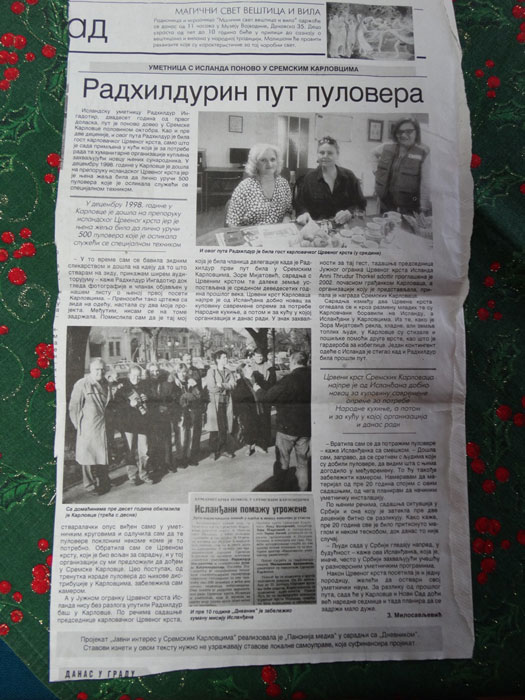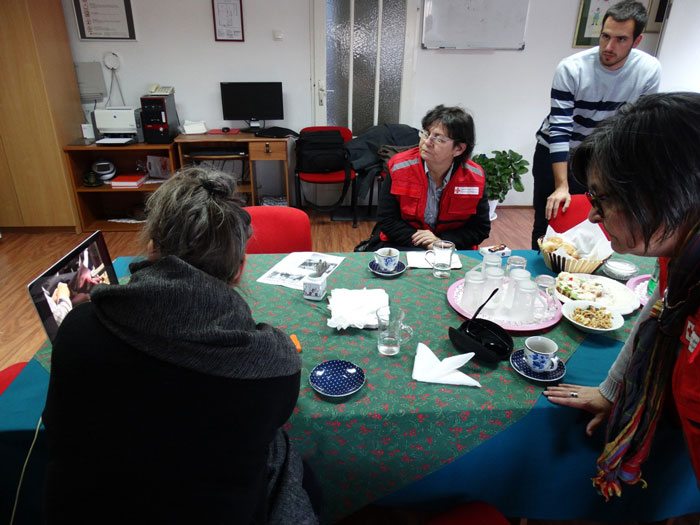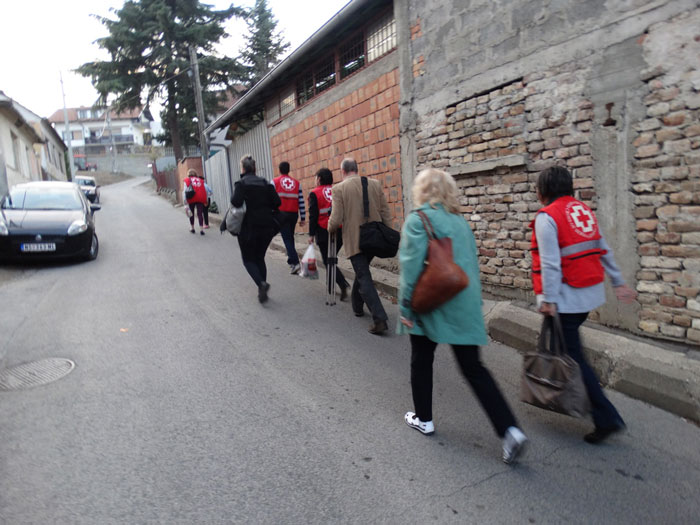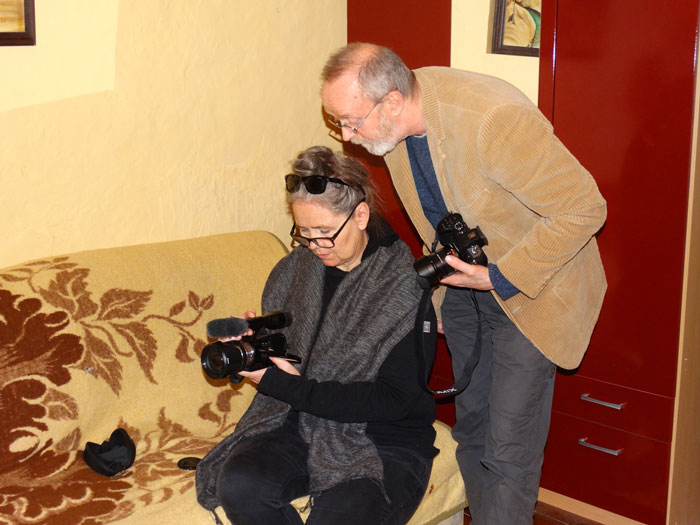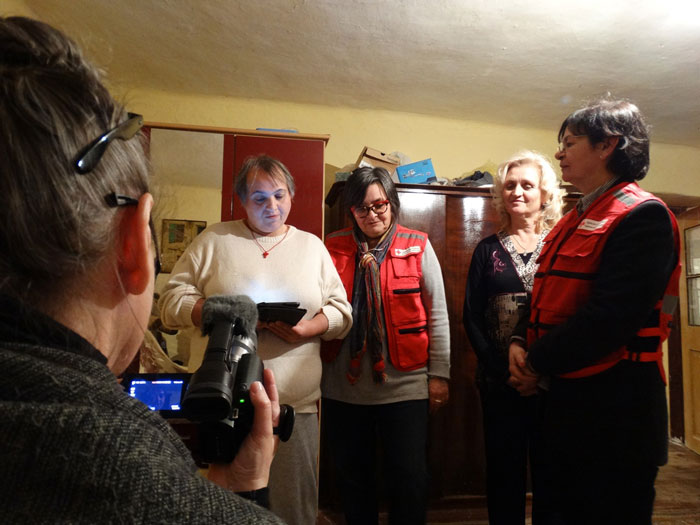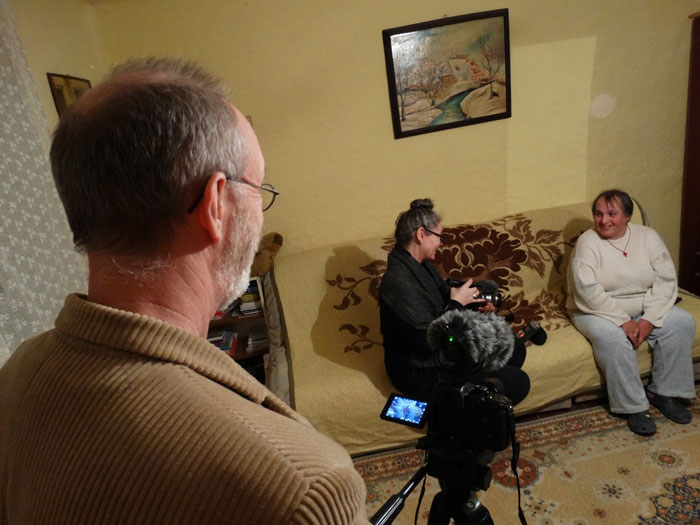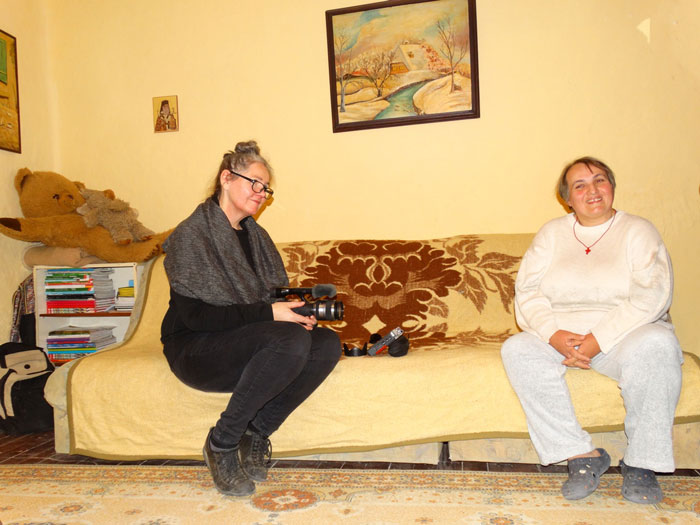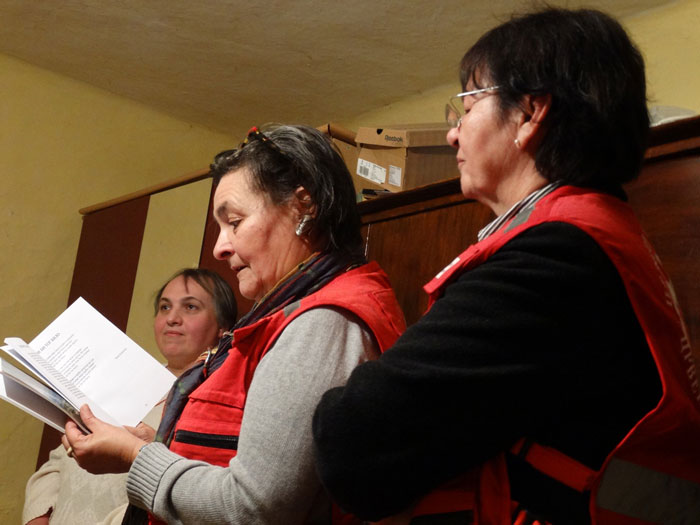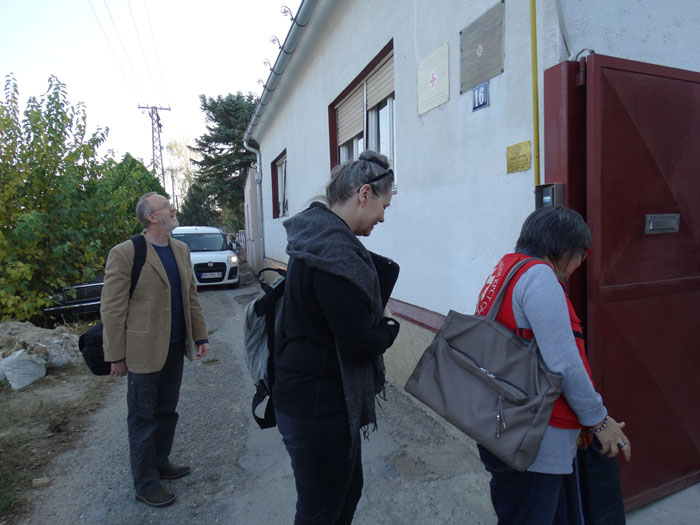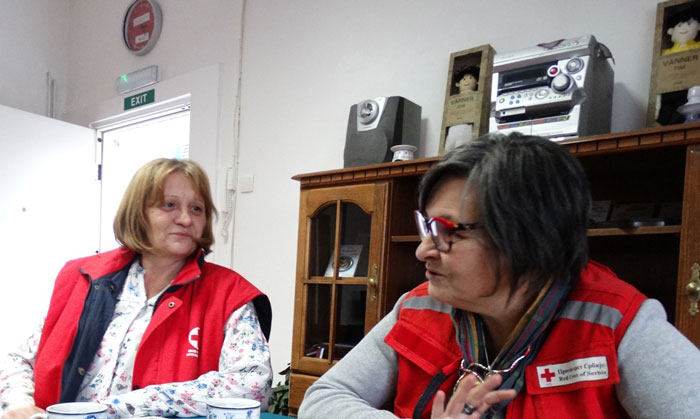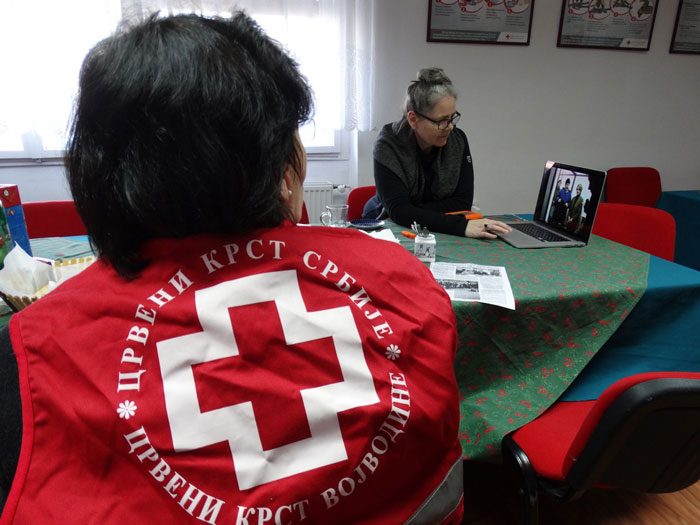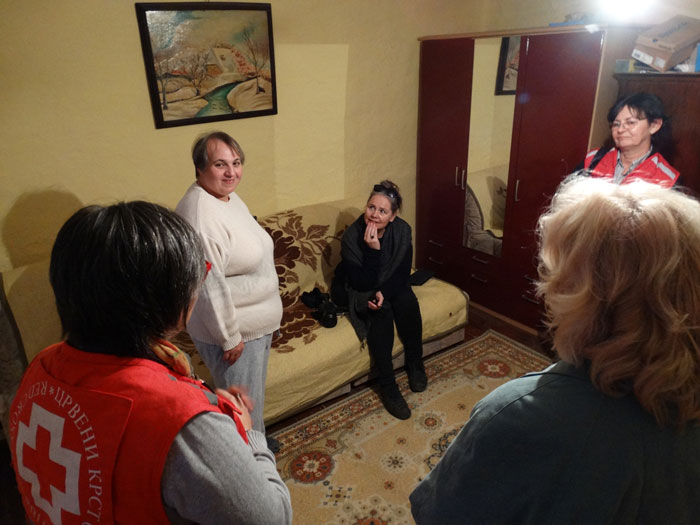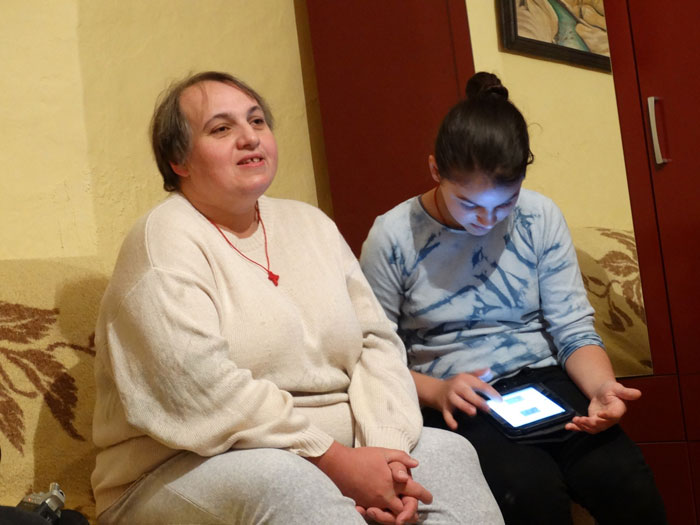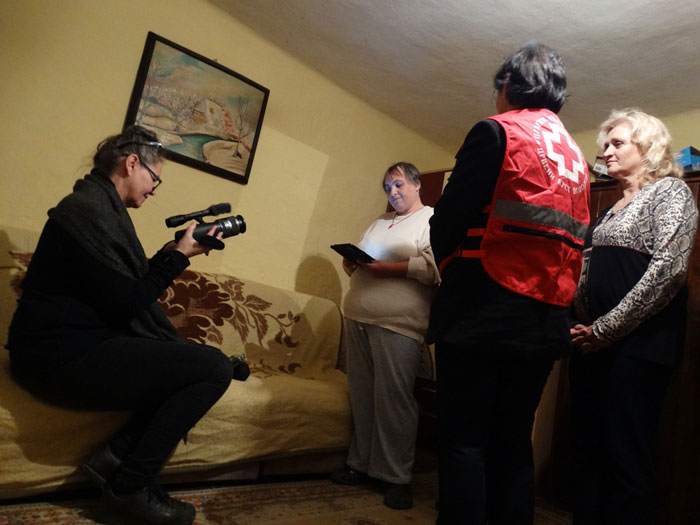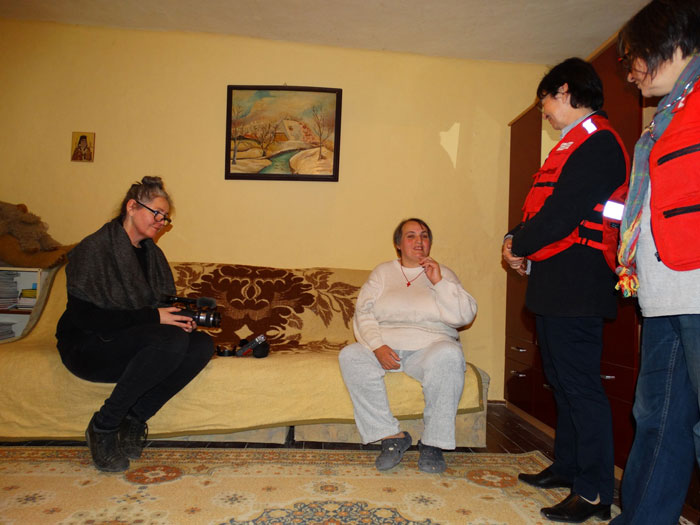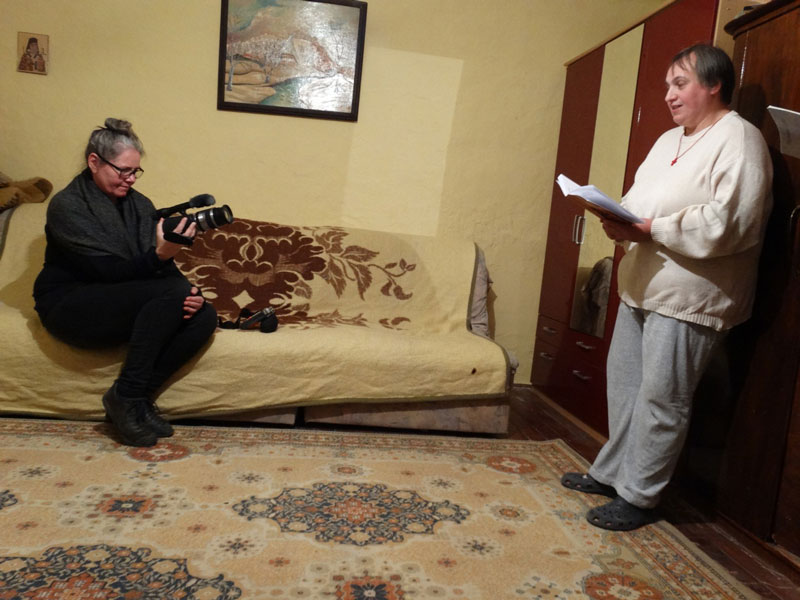Names more important than people
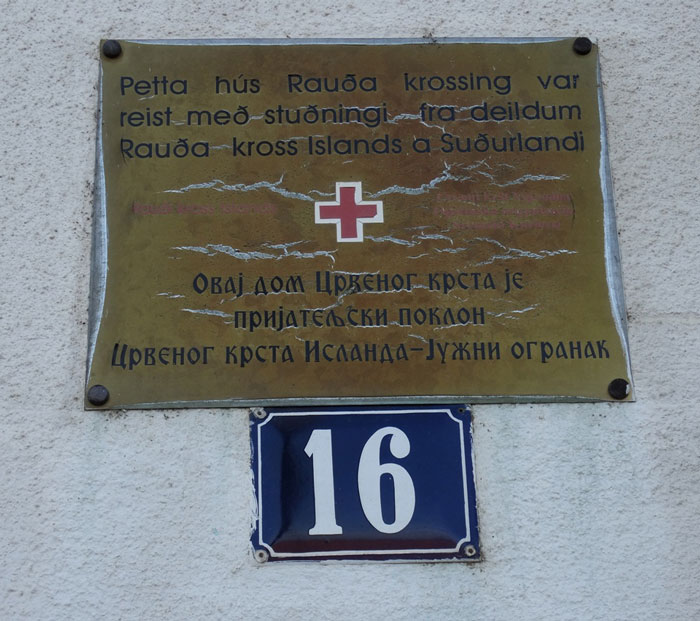
On a sunny day, unusually warm for November, Radhilur Ingadotir, an artist from Iceland, is once again filming a story about refugee destinies in Sremski Karlovci, with the help of her husband. Part of the aid from the Red Cross of Iceland, 20 years ago, were hand-knit and decorated pullovers that the artist made to keep the refugees in this town warm. Her humanitarian gesture was not just a one-time empathy with people in need. For two decades she has been thinking about the refugees whom she gifted the sweaters to, wondering what life is like for them today.
At the entrance of the Red Cross of Sremski Karlovci, a plaque testifies about the aid of the Red Cross of Iceland to this branch. An inscription forever. We enjoy a reminder of 1998 surrounded by traditional Srem hospitality. On Radhilur`s laptop, her movie made here in the past is being played. Sad and gloomy, the faces of refugees selecting the color and size of pullovers, frozen, distant. Some of the faces are familiar, some are forgotten.
We take the time machine to travel through memories, and we would like to suppress all the sadness.
In the garden painted with autumn colors, Gordana and her daughter Danica welcome us to their home. The son has disappeared to play, and the husband is arriving later, from his work at the museum of wine and honey. The optimism of this brave woman confronts her own destiny. During the bombardment in her hometown of Sarajevo in 1992, she was struck in the head by shrapnels. Her father, sister and three year old nephew were in the same apartment. “It happened on the day of the Virgin Mary, on August 28th,” remembers Gordana. All windows were open because of the heat. Suddenly, a loud noise and darkness. The dust and earth from the grenades climbed all the way up to our apartment. My father took the shrapnels sticking out of my head with a pair of pliers.I still have troubles when the pieces of metal move around my head.”
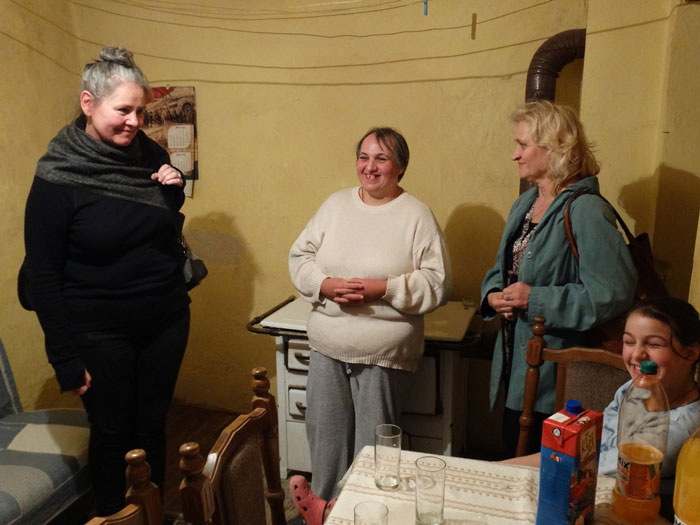
Gordana reached Sremski Karlovci in the middle of the nineties. She took care of her father and mother before their early demises, and then she was left alone, without possibility for employment. “It was fate when I met my husband. I am overjoyed with him and our children, We have little, but in reality, we have everything. I would not trade this life for anything else in the world.” Gordana`s soul is as wide as Srem, and expresses itself through verse. She has written 135 poems, and some were published in the Karlovci journal. “My city is not what it was before, now that last names have become more important than the people whom they belong to,” speaks Gordana through one of her poems. “I teach my children to see people as good or bad only”, she concludes her story.
Night has fallen upon Sremski Karlovci, and our way home is lit by the unusual simplicity, kindness and optimism of this once refugee, and now citizen of Srem. That simplicity and kindness have decorated pullovers two centuries ago, and connected distant worlds.
